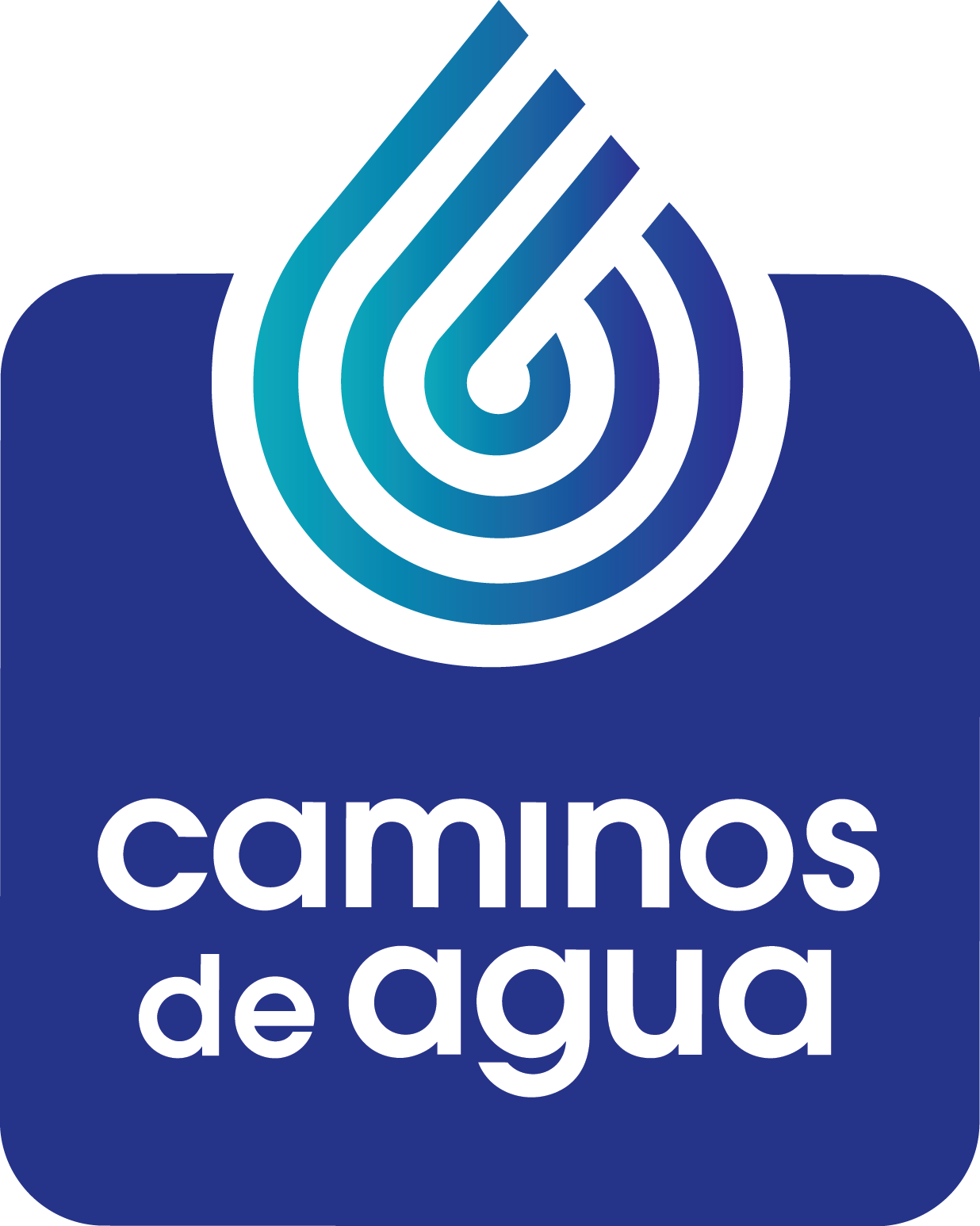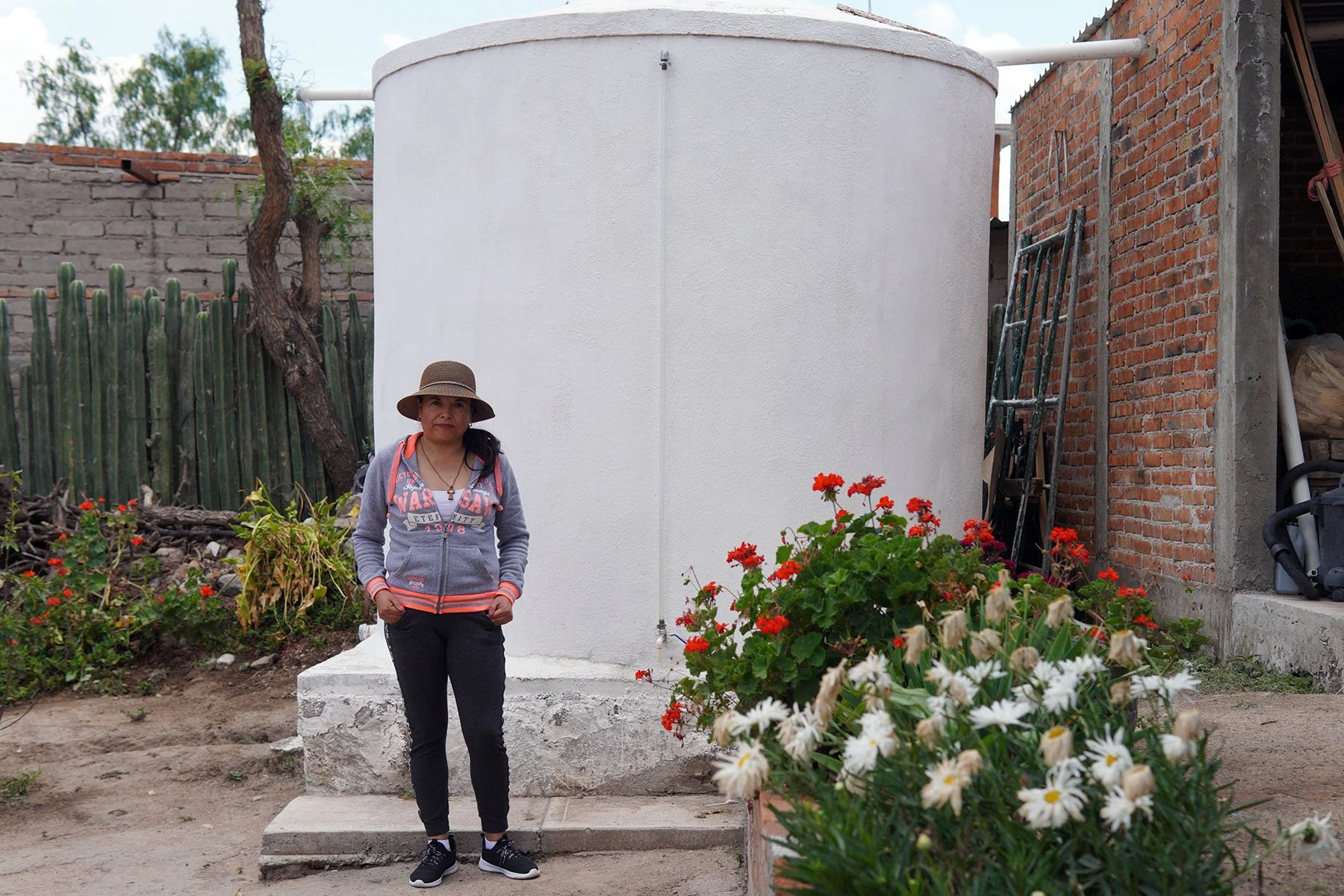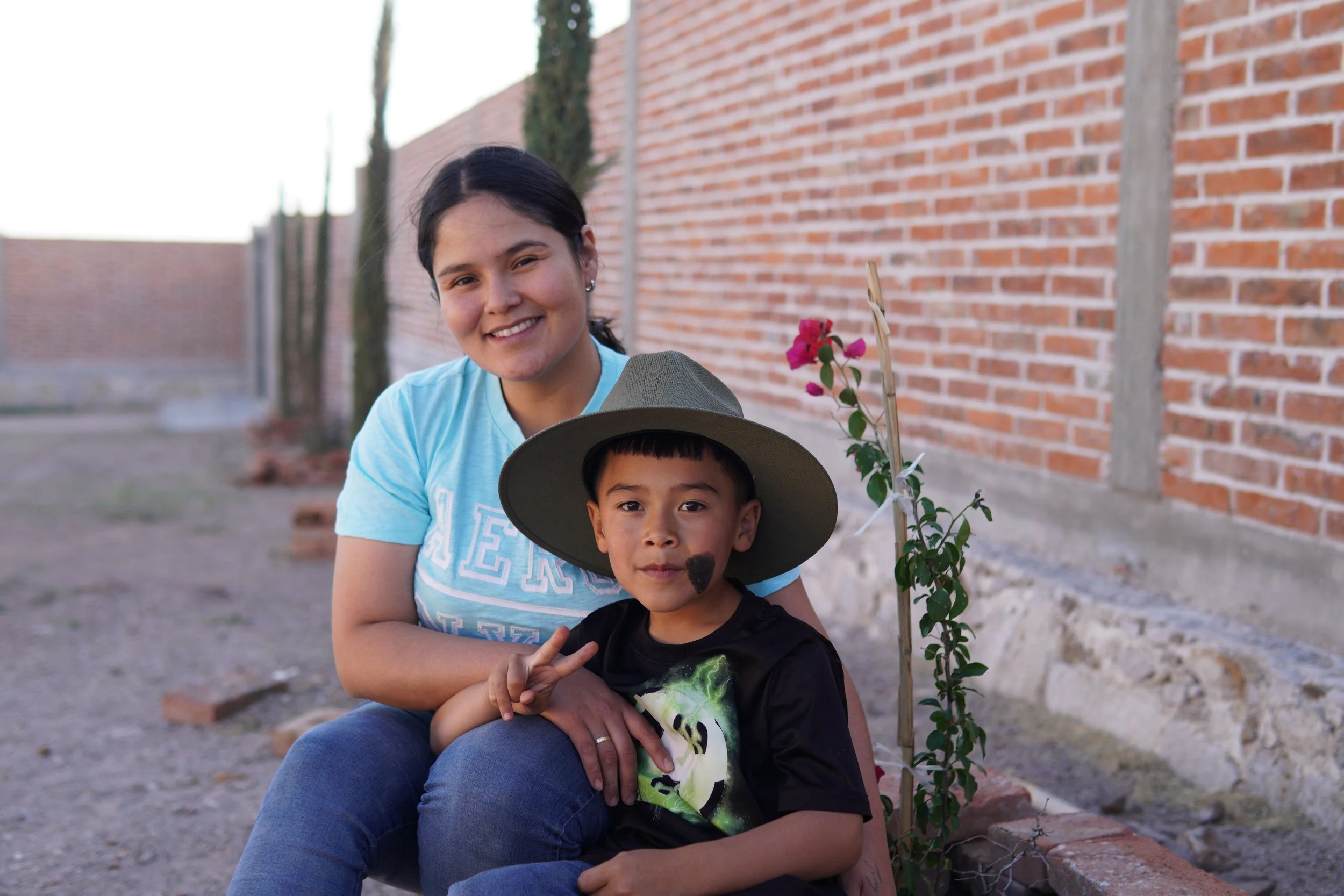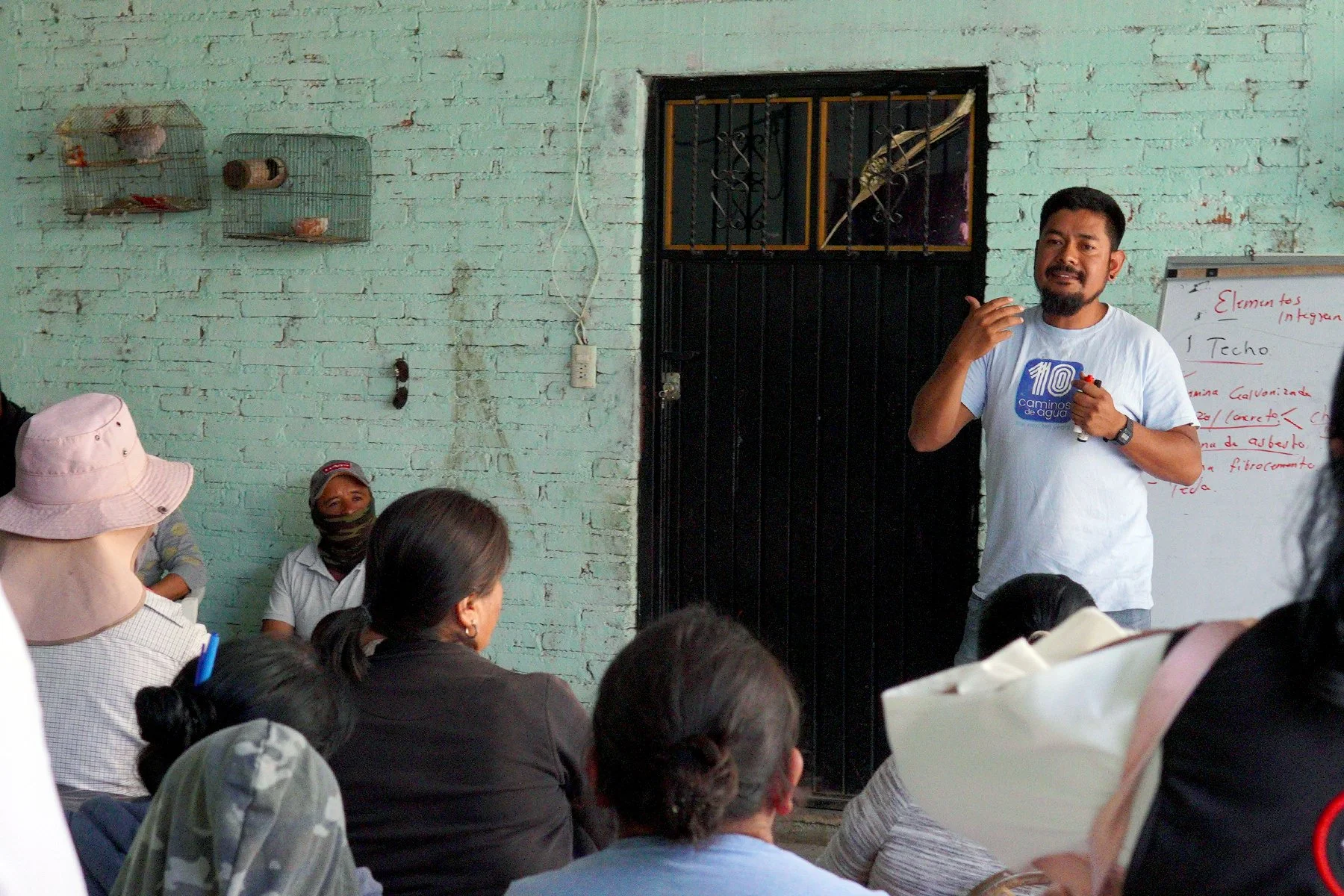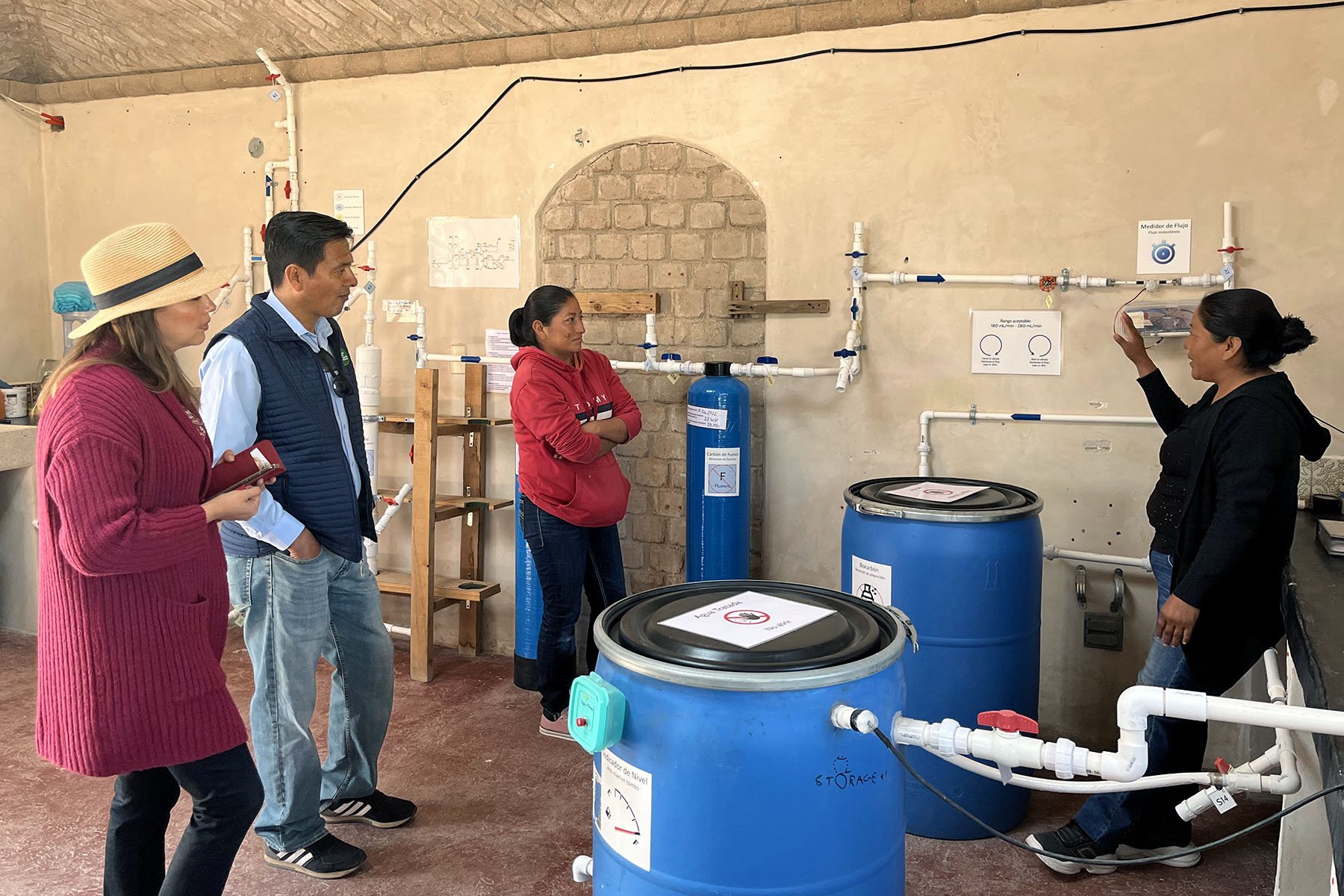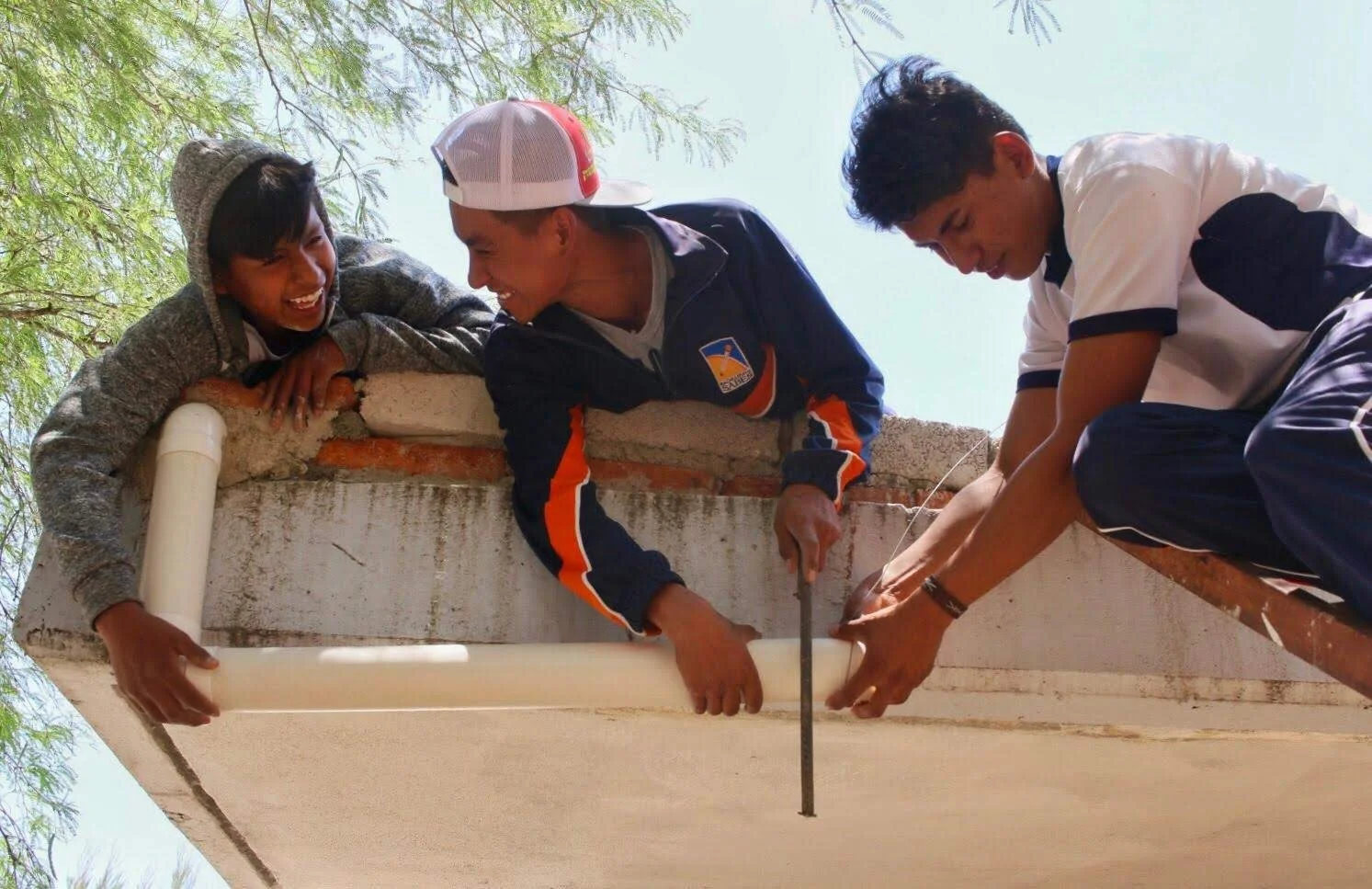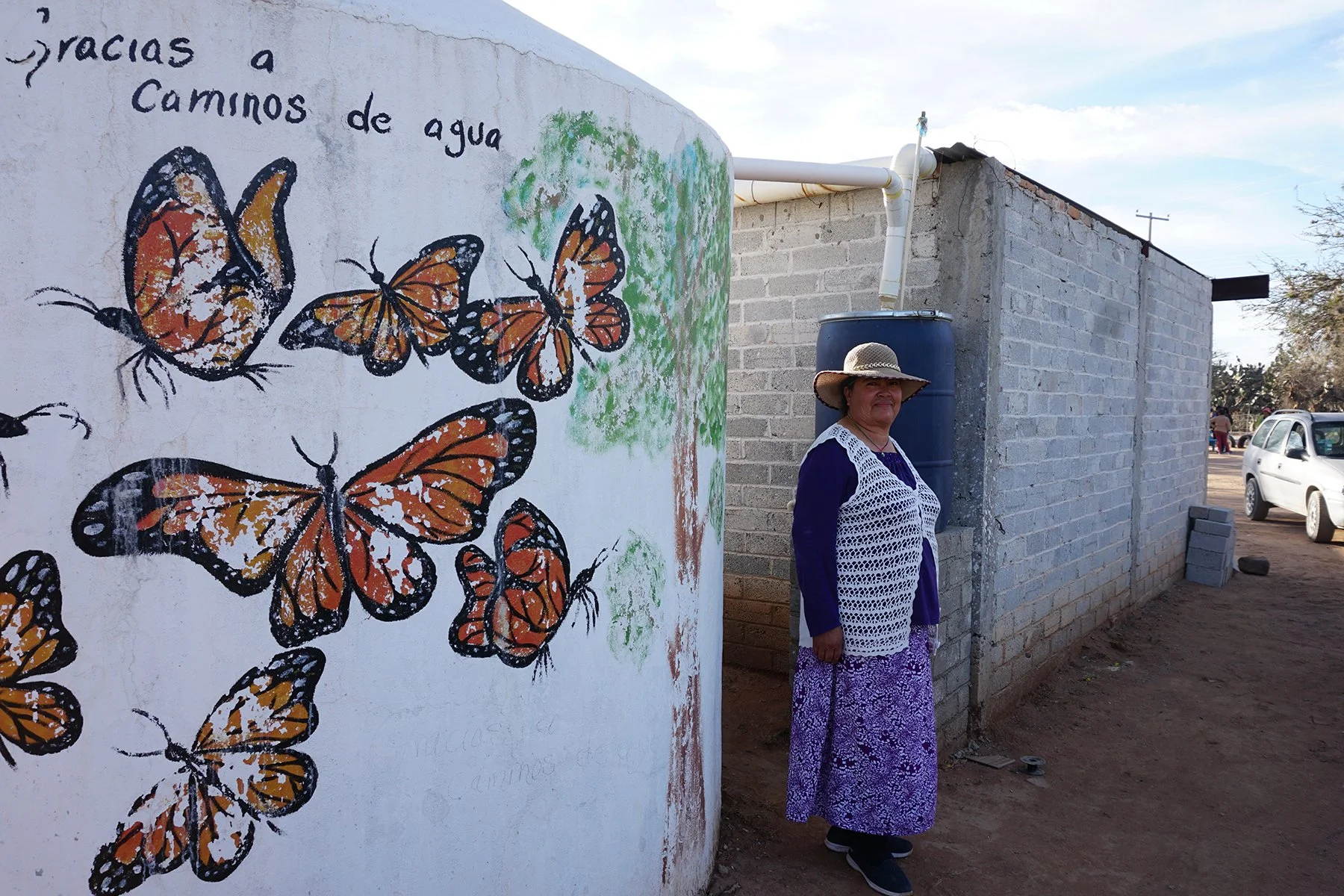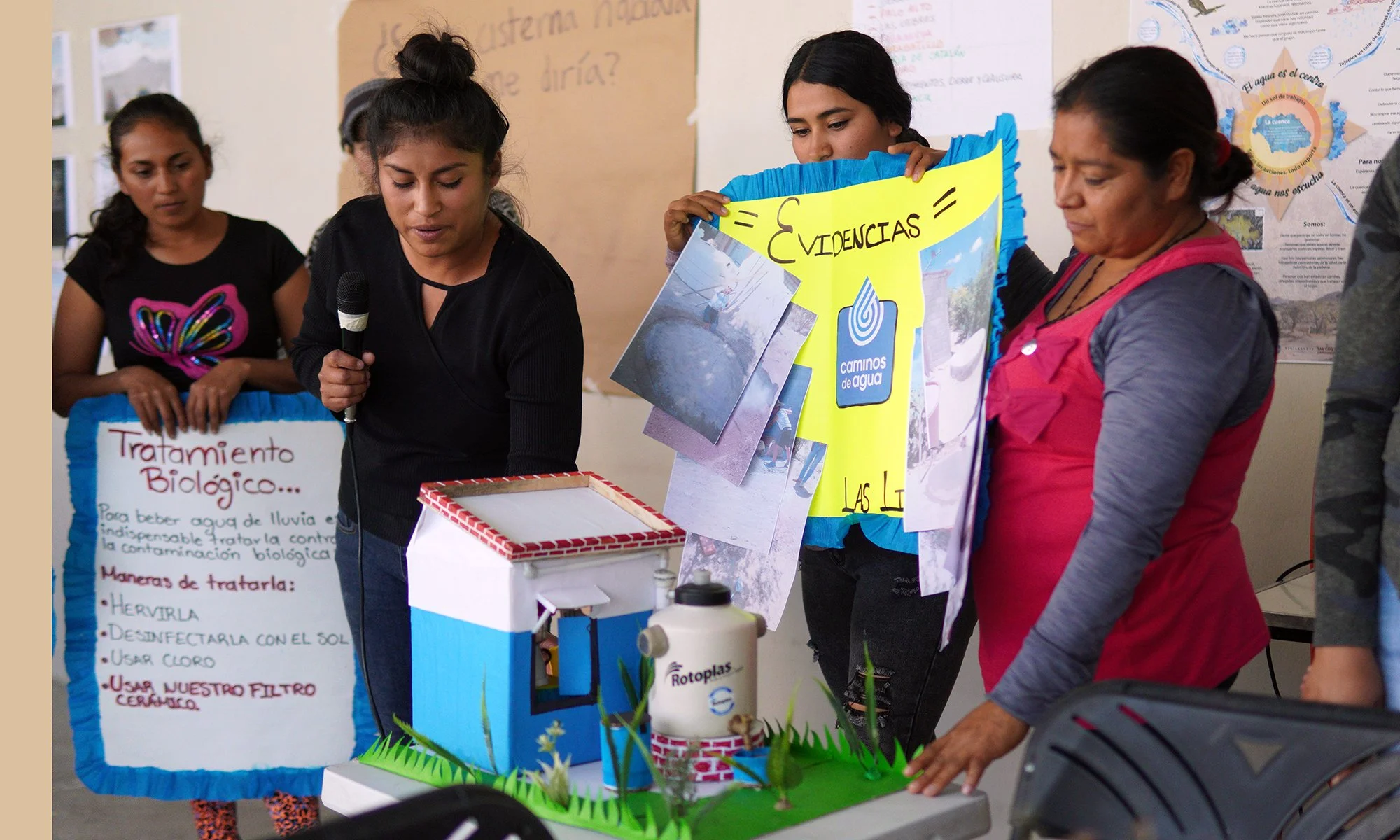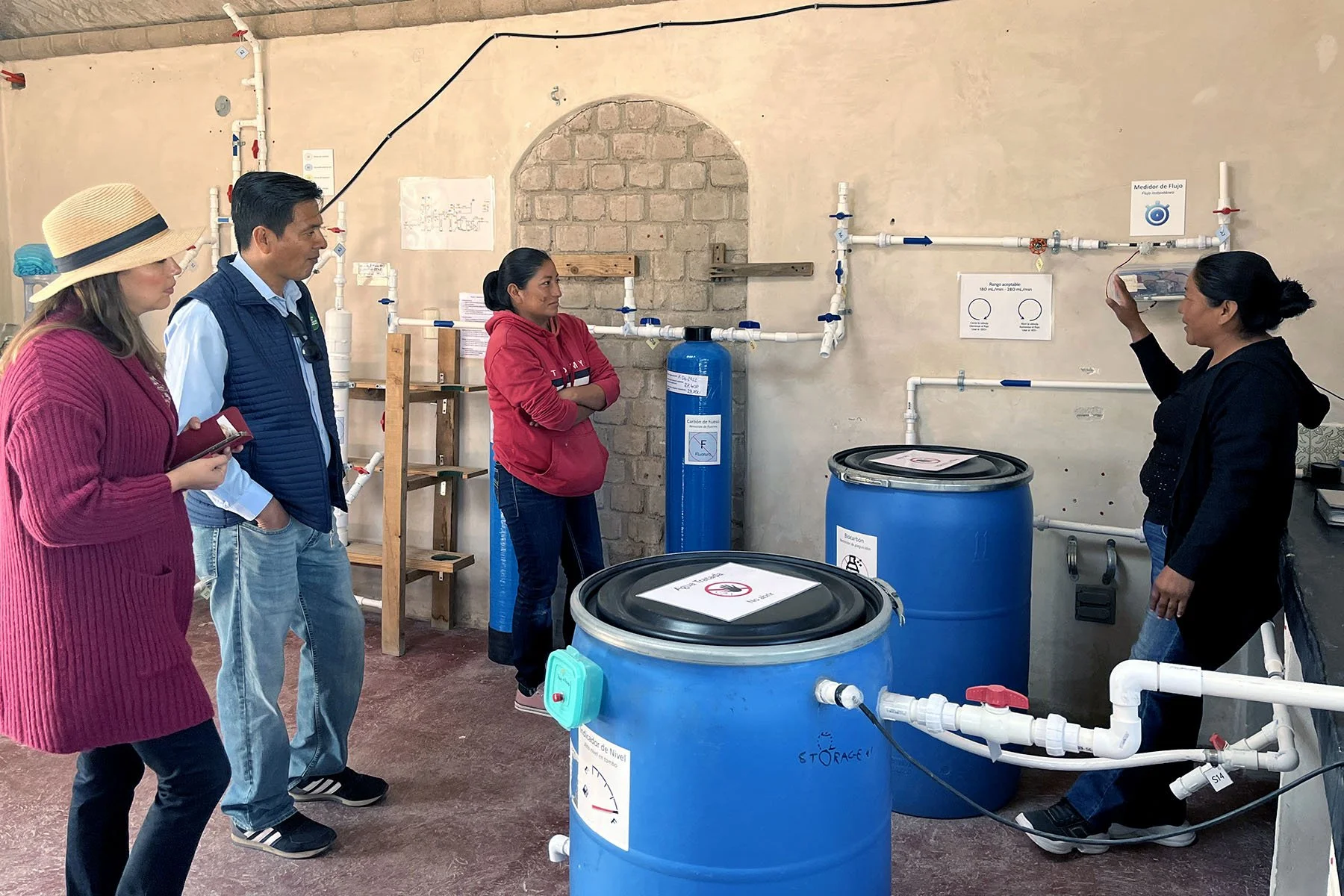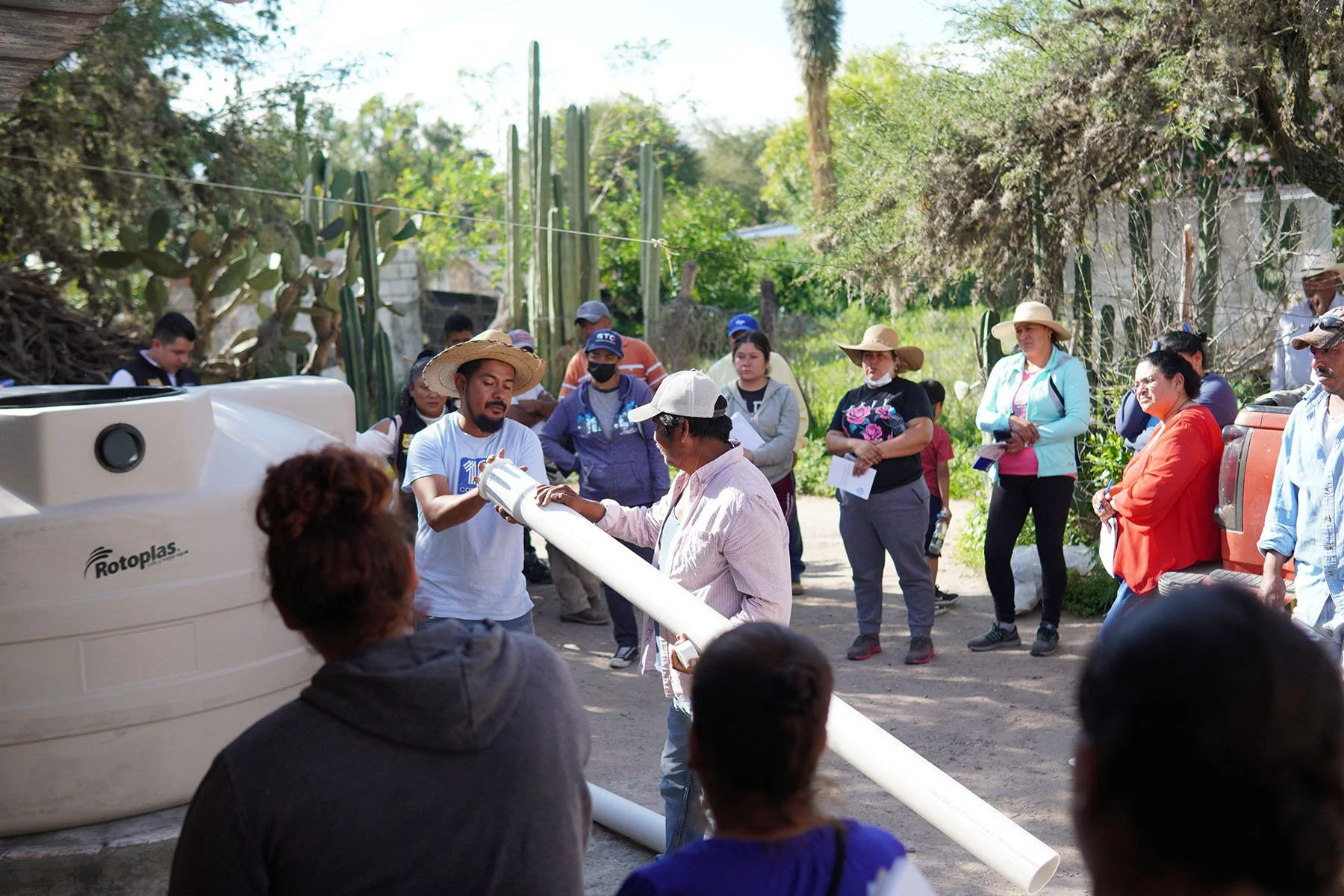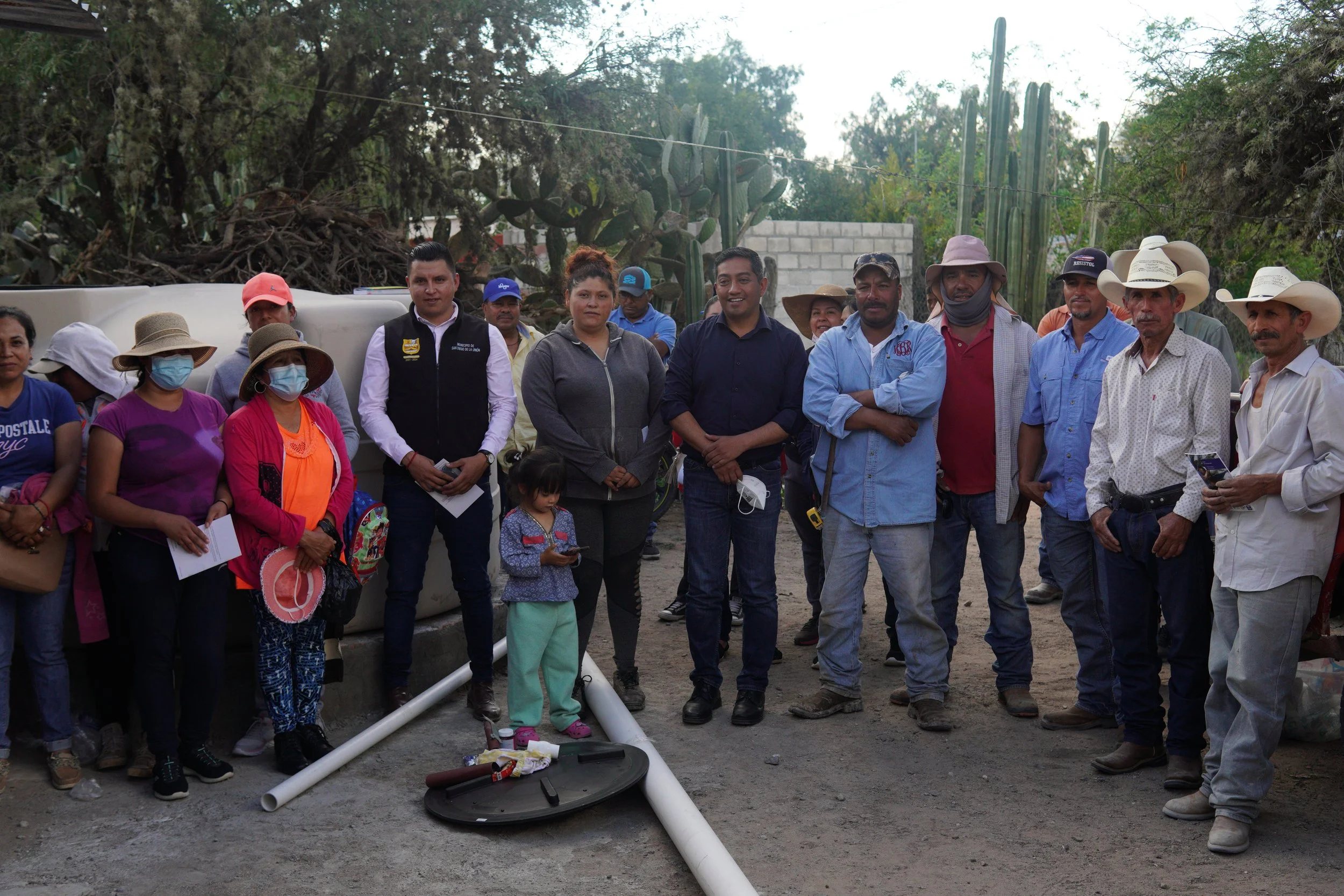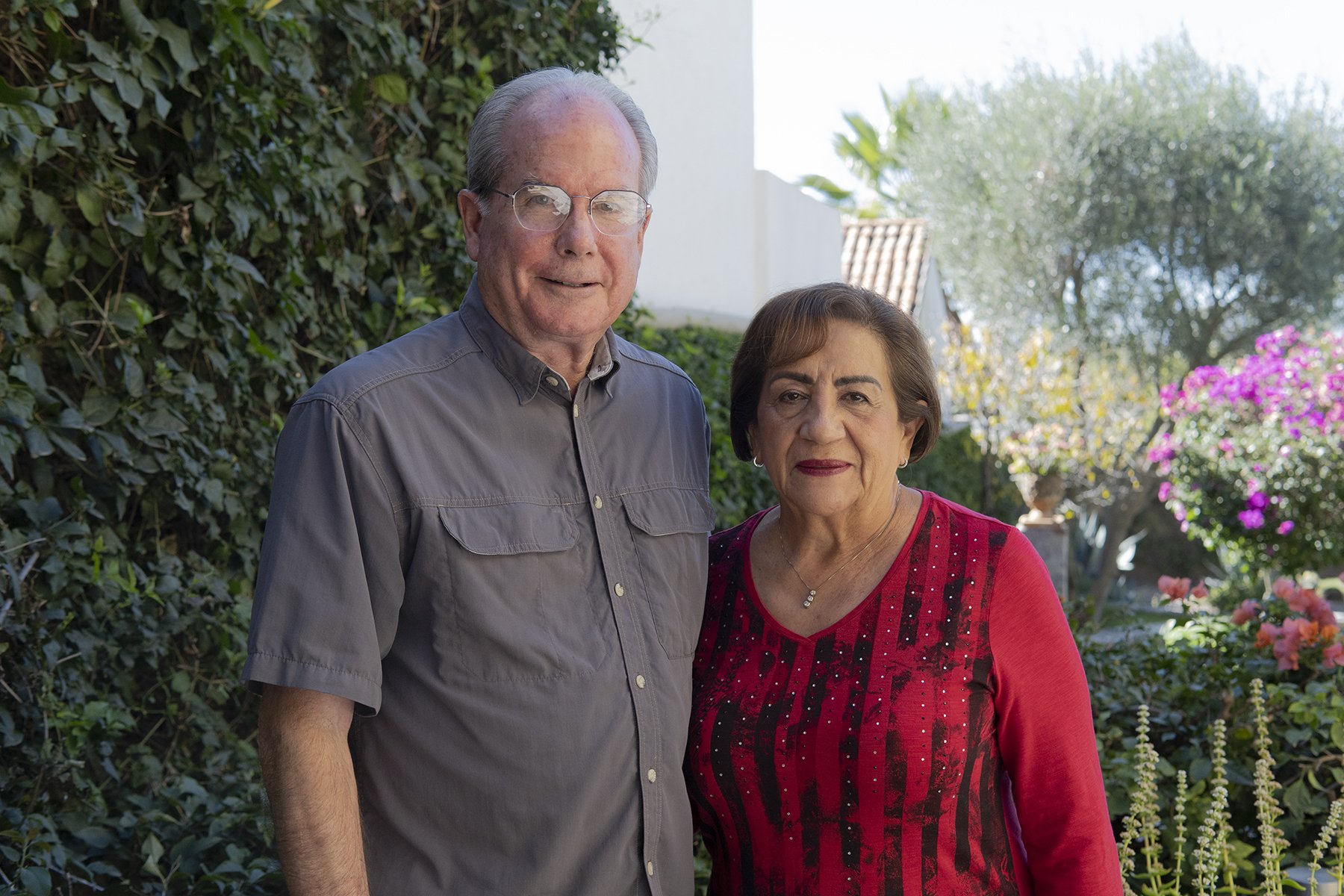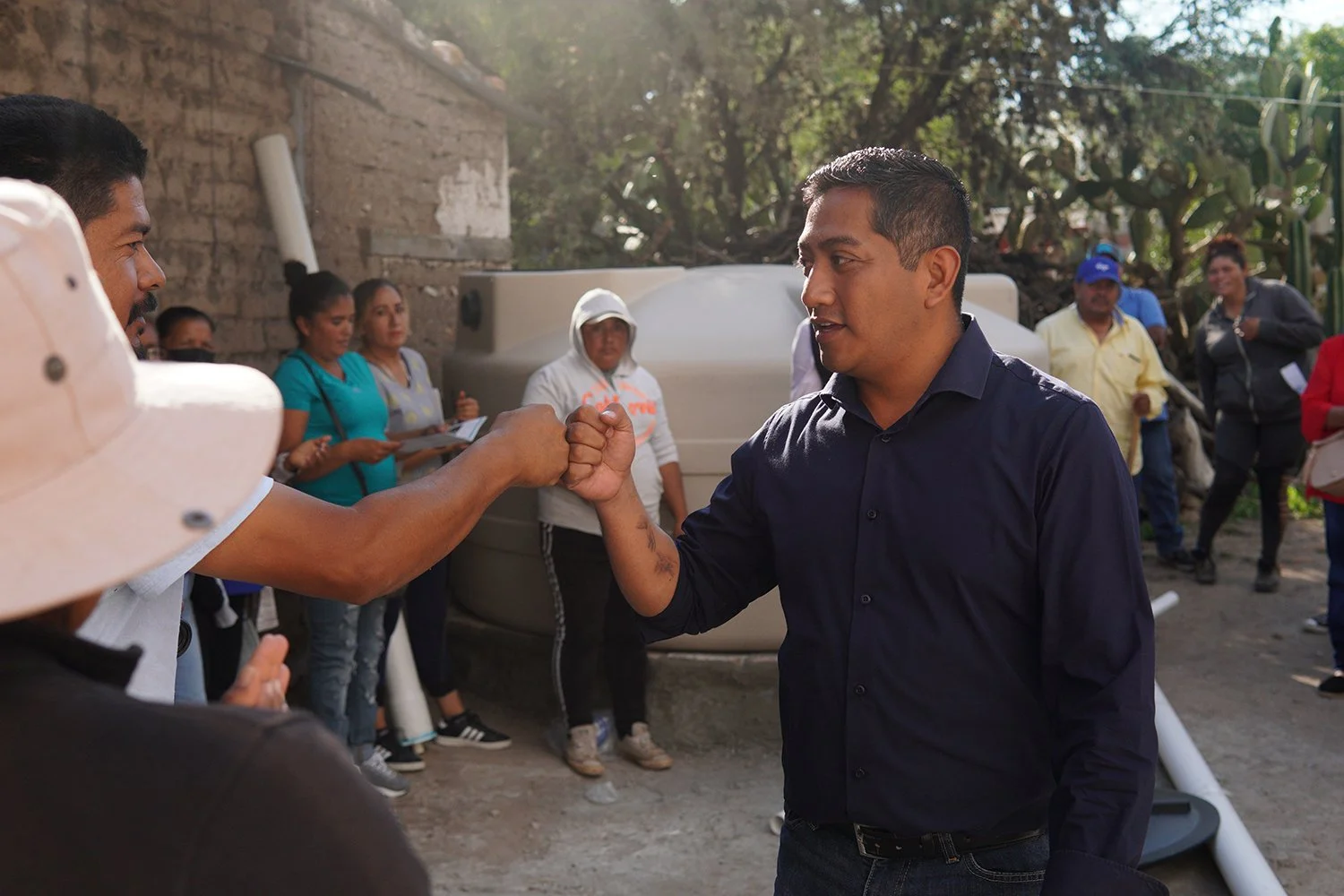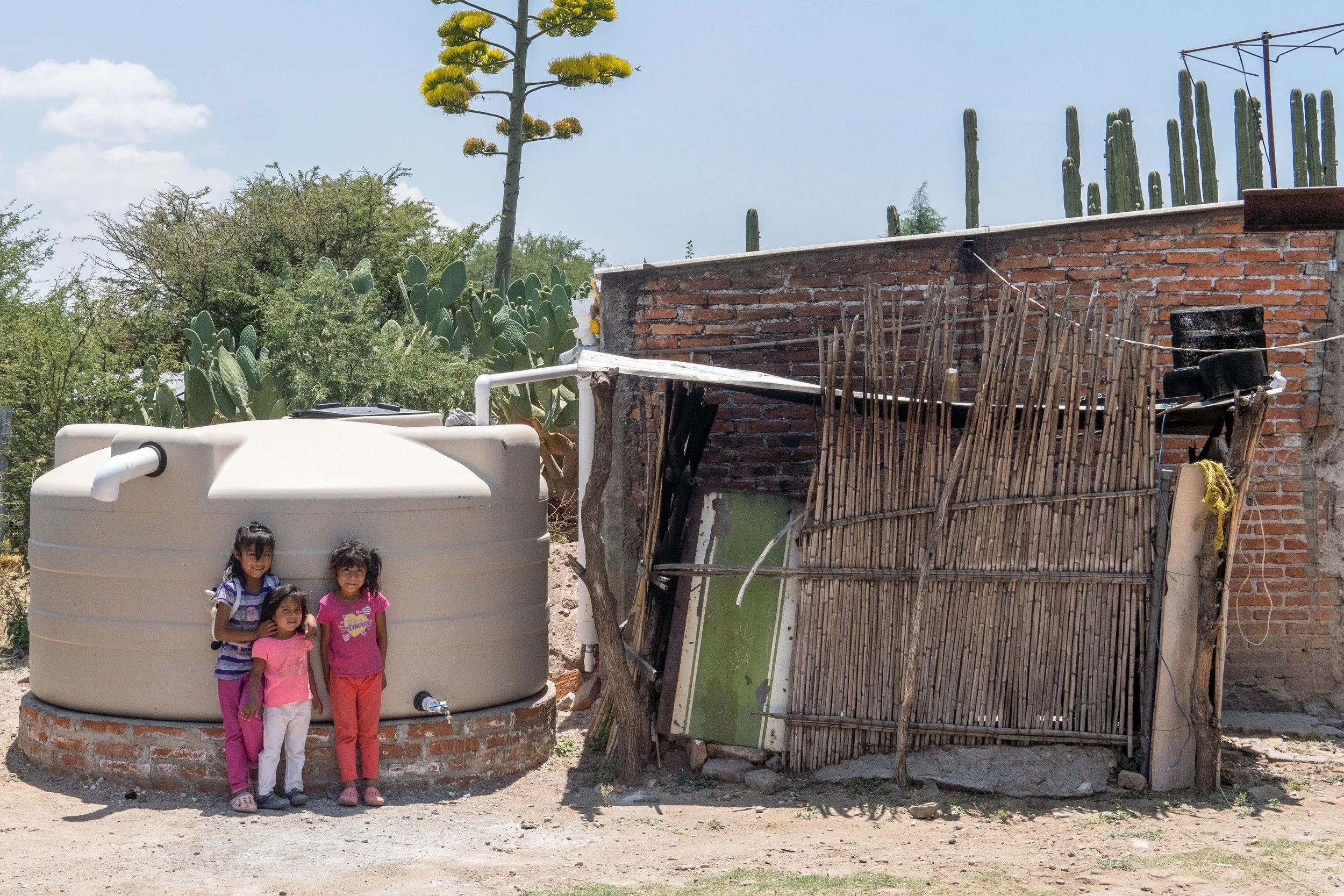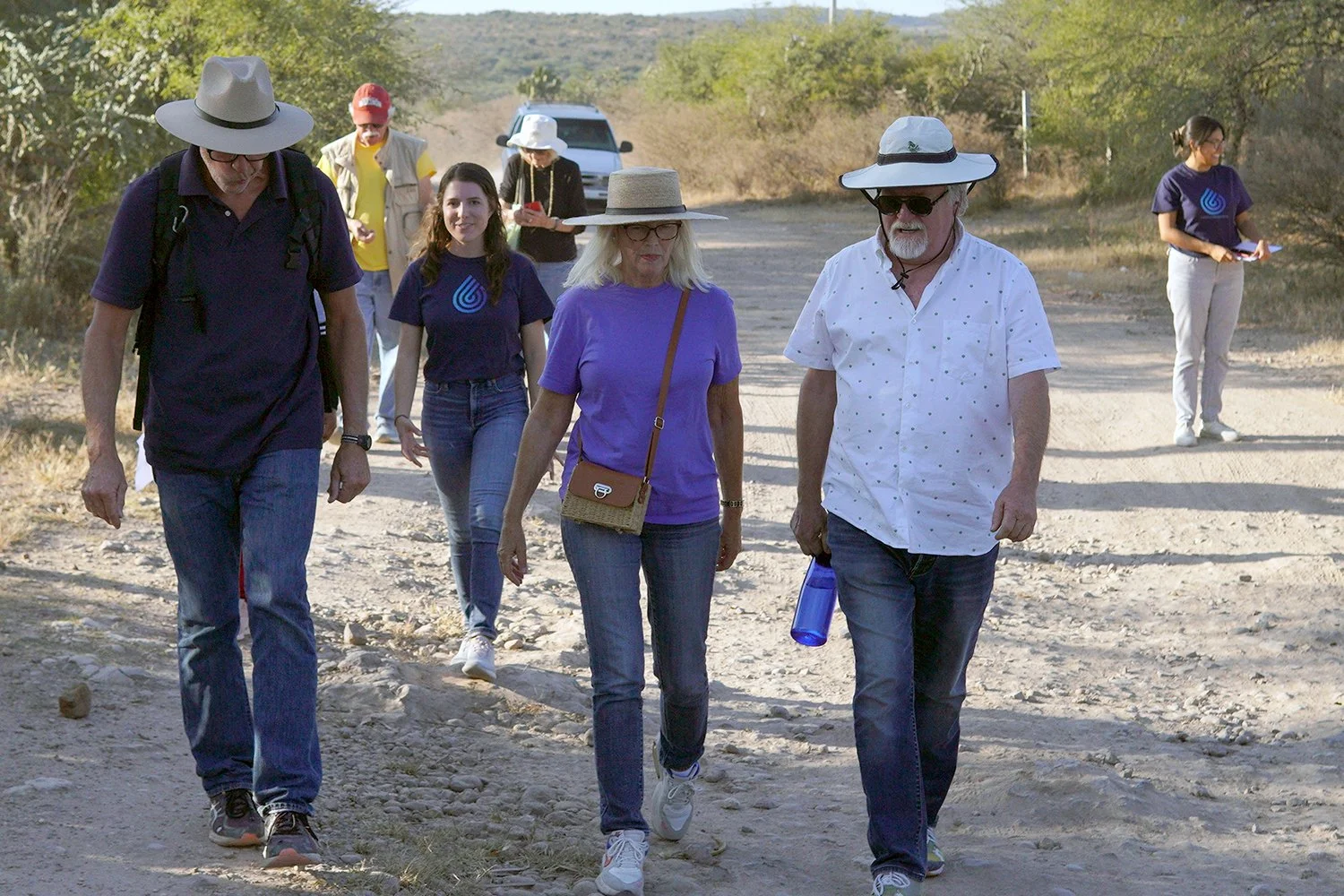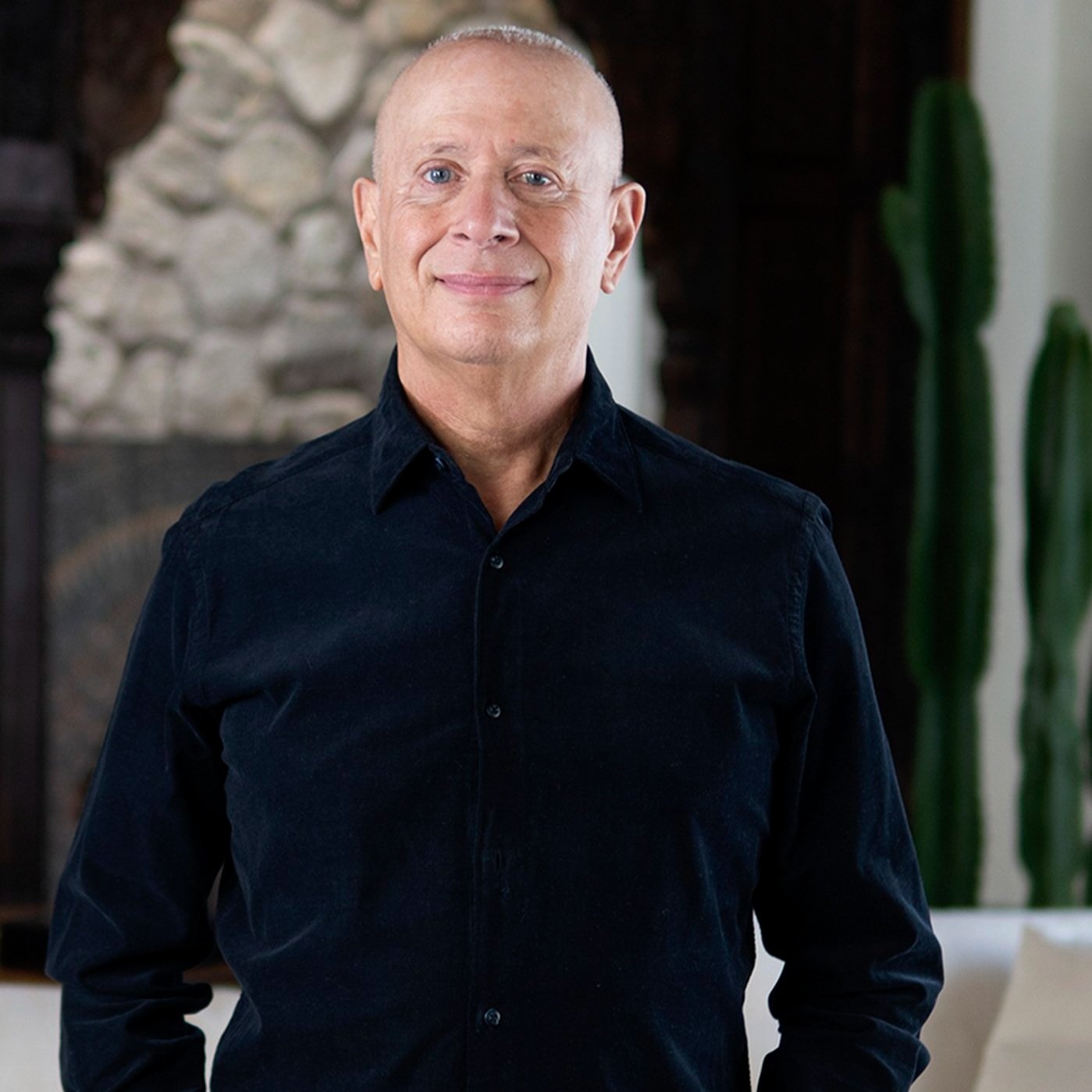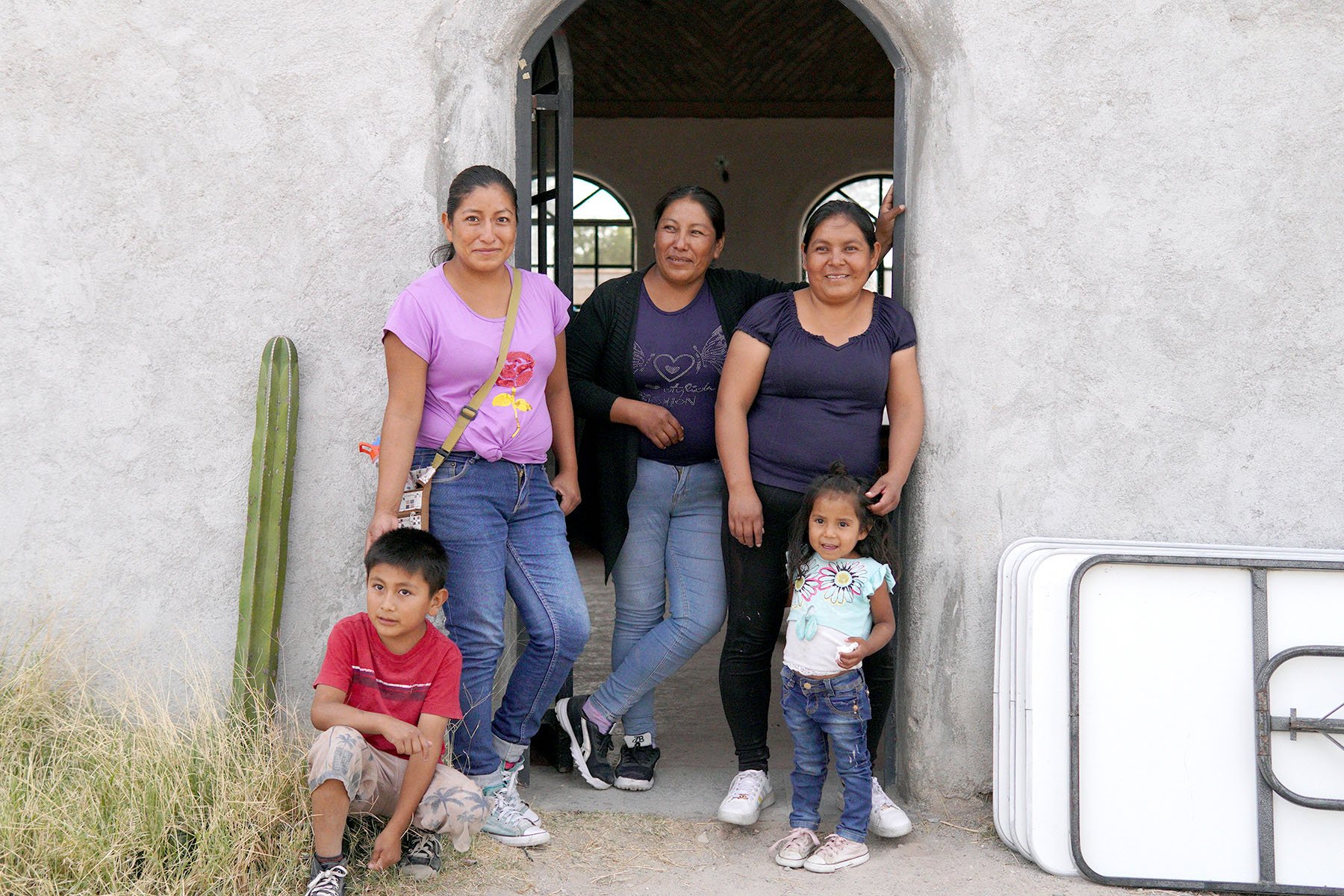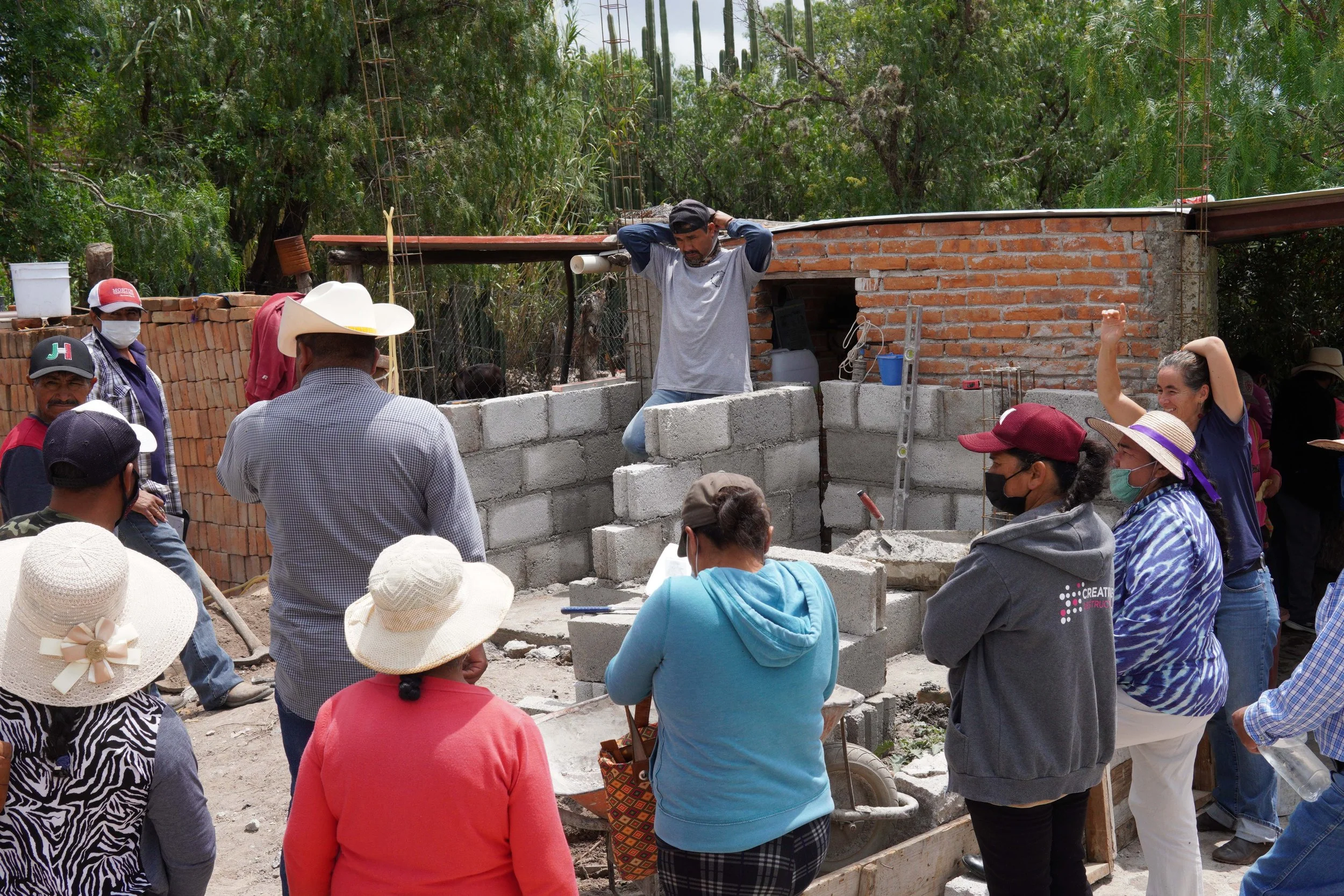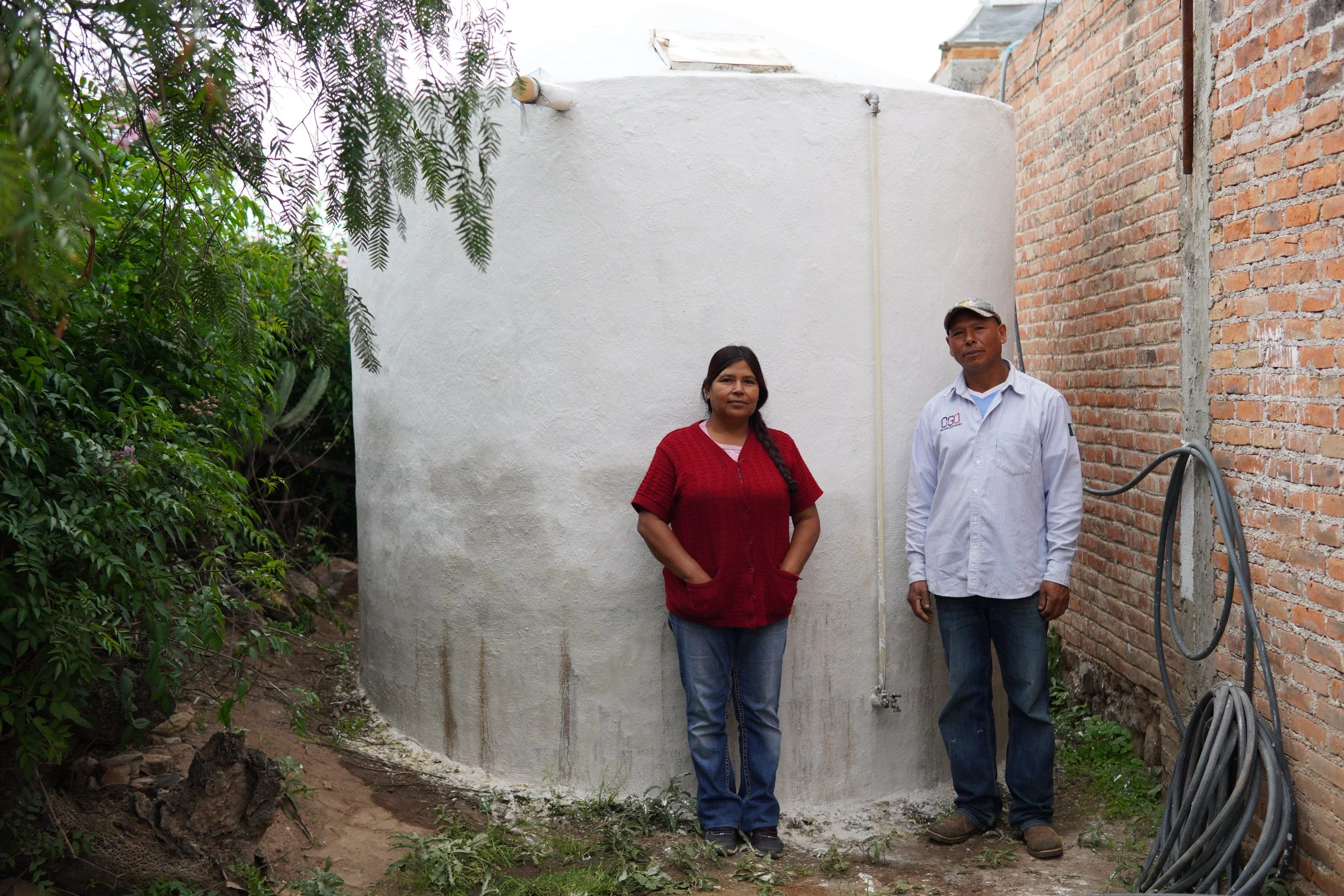The annual rains are arriving soon, and we are incredibly grateful for that. While building systems to capture that rain is an important first step, if you don’t ensure that those systems are being used and maintained correctly over the long-term, they will have very limited value.
Read MoreThe rainy season has arrived, and this is a very special time of year for us here at Caminos de Agua. Rainwater cisterns are beginning to fill again throughout our region, replenishing clean water access for thousands of people who have participated in our Rainwater Harvesting Program over the years.
Read MoreTalking about the future of our work means talking about the future of water in the Upper Rio Laja Watershed for sure - but also beyond. Integrated water management around the world is becoming increasingly essential since water supplies are getting considerably degraded by human activities. In our region in particular, we are experiencing an unprecedented level of water extraction from our aquifer, creating very serious environmental, social, and health issues.
Read MoreOver the past eleven years, Caminos de Agua has developed a variety of interventions and solutions to confront a complex and multifaceted water crisis that continues to worsen. Affecting most of Northern Guanajuato, our regional water crisis touches seven municipalities in an area of more than 6,800 square kilometers – larger than the size of the State of Delaware in the US – with more than 700,000 people living in it. Additionally, 20 other states throughout the country, impacting over 21 million people, face similar challenges with limited resources and solutions available. To attack the scope and intricacies of our crisis, we have carefully assembled a wide network of collaborators, technological developments, data collection, awareness building efforts, and constantly adapting them to tackle our evolving situation. Read on…
Read MoreOver the past couple of weeks we’ve been sharing a series of stories describing what it is like to live and confront our water crisis through the lens of different communities and people living through it. Each week we are taking you through a different aspect of our water crisis, and today, we bring you the story about the consequences of drinking contaminated water.
Read MoreWe are bringing you a special 5-Part Series of stories, each looking at different aspects of the water crisis, and our work, through the lens of the communities and people in our region. Last week, we brought you a story about The Cause of our water crisis, and today, we are bringing you the second installment in our series that will explore The Impacts of our water crisis, namely the resulting water scarcity and water contamination caused by the overexploitation of our groundwater.
Read More“Day zero” refers to the day when a city, or region, has essentially run out of water. This has already happened in places like Cape Town, South Africa and even in cities of Mexico, like Monterrey, as recently as last year – a metropolitan region of almost 6 million people. Day zero, however, has been a reality for thousands of people in rural communities, right here in our watershed for years. Read on to learn more…
Read MoreOn this occasion, we are illustrating the Cause of our water crisis through the perspective of one of our oldest partner communities, Pozo Ademado – a community an hour and half north of San Miguel surrounded by lush agroindustrial fields and yet lacking adequate access to water for the people actually living there.
Read MoreThis week, we want to bring you up to speed on our pioneering technological innovations and illustrate how they are making a very real impact regionally as well as across Mexico.
Read MoreIn 2023 we have the opportunity to expand our awareness efforts and also the implementation of solutions – impacting more people than ever before, and we are excited to share our plans with you. Following is a brief summary of our 3 major community-facing priorities for 2023.
Read MoreAt the end of 2022, and as part of the Water and Health project, Caminos de Agua signed a contract with the municipal government of San Diego de la Union, Guanajuato, a neighboring municipality to San Miguel de Allende, which suffers from some of the most severe water quality and scarcity issues in our region. The collaborative project focuses on the installation of rainwater harvesting systems and educational programming throughout the municipality.
Read MoreThroughout this month, we have been using the voice of selected Caminos’ supporters to explain why they give to us, why they volunteer their time, or collaborate with us. We are ending this series with our dear friends, Chip and Lucy Swab, who have been fierce supporters of our mission for many years. We hope you will find their point of view both interesting and motivating.
Read MoreJuan Carlos Castillo Cantero is the Mayor, also known as the “municipal president”, of San Diego de la Unión – a neighboring municipality to San Miguel, which suffers from some of the most severe water quality and scarcity issues in our region. Mayor Castillo has partnered with Caminos de Agua on multiple projects. The following is an interview between Mayor Castillo and Caminos de Agua held earlier this month.
Read MoreSusan Page is a twenty-year resident of San Miguel. She has been involved in many not-for-profit activities in our community and is an active supporter of Caminos de Agua. The following is a conversation with Susan about her involvement in San Miguel and her experiences with 'Caminos'.
Read MoreJohn Calaway had a long and successful career in the environmental and energy sectors as well as being an established artist. He recently became a San Miguel resident and shortly thereafter a Caminos de Agua supporter. Below is a dialogue between John and Caminos about our work and why he was so attracted to it.
Read MoreDavid Frechter is a resident of San Miguel de Allende who recently led the launch of the “Clean Water for Life Campaign” to support rainwater harvesting services in at-risk communities. The following is a conversation between David and Caminos de Agua about his experiences becoming part of the SMA community, getting involved with ‘Caminos’, and making a big difference.
Read MoreThis week, we want to bring you a glimpse of our most forward-facing technology: our Groundwater Treatment System, a low-cost, internally–developed technology capable of removing arsenic and fluoride at the community level. GTS is a truly pioneering solution, which can, today, provide clean drinking water to 25 families at the same initial cost of a one family Rainwater Harvesting System. And very soon, GTS will be able to be easily scaled to impact thousands at a fraction of the initial installation costs of rainwater solutions.
Read MoreThis month, at Caminos de Agua, we are commemorating our 10th Anniversary as an organization. To celebrate, we’ve been bringing you stories that illustrate how our work on water issues has evolved over this past decade of impact. This week, we want to talk to you about a widely overlooked aspect of water access: sanitation, and what it means for families to provide a dignified bathroom for their children, especially in the face of extreme water scarcity.
Read MoreWatch the story of Alfredo and Celia who come from Llano Verde – a rural community an hour and a half north of San Miguel, which suffers from extremely severe water scarcity conditions. The issue is so severe there that families would often resort to drinking out of rain puddles or other equally desperate measures to access water.
Read MoreThroughout this month that Caminos de Agua is celebrating 10 years of existence, we are bringing you stories highlighting our decade of innovation and impact. This week, we’re bringing you critical updates on our Aguadapt water filter, one of our most significant technological developments, designed and produced by us right here in San Miguel, that removes 99.99% of biological contaminants from the water. This award-winning innovation has gone from small artisanal production to make rainwater safe for drinking in our region to a professional production providing clean water access to communities well beyond our watershed, now moving towards large-scale commercialization.
Read More